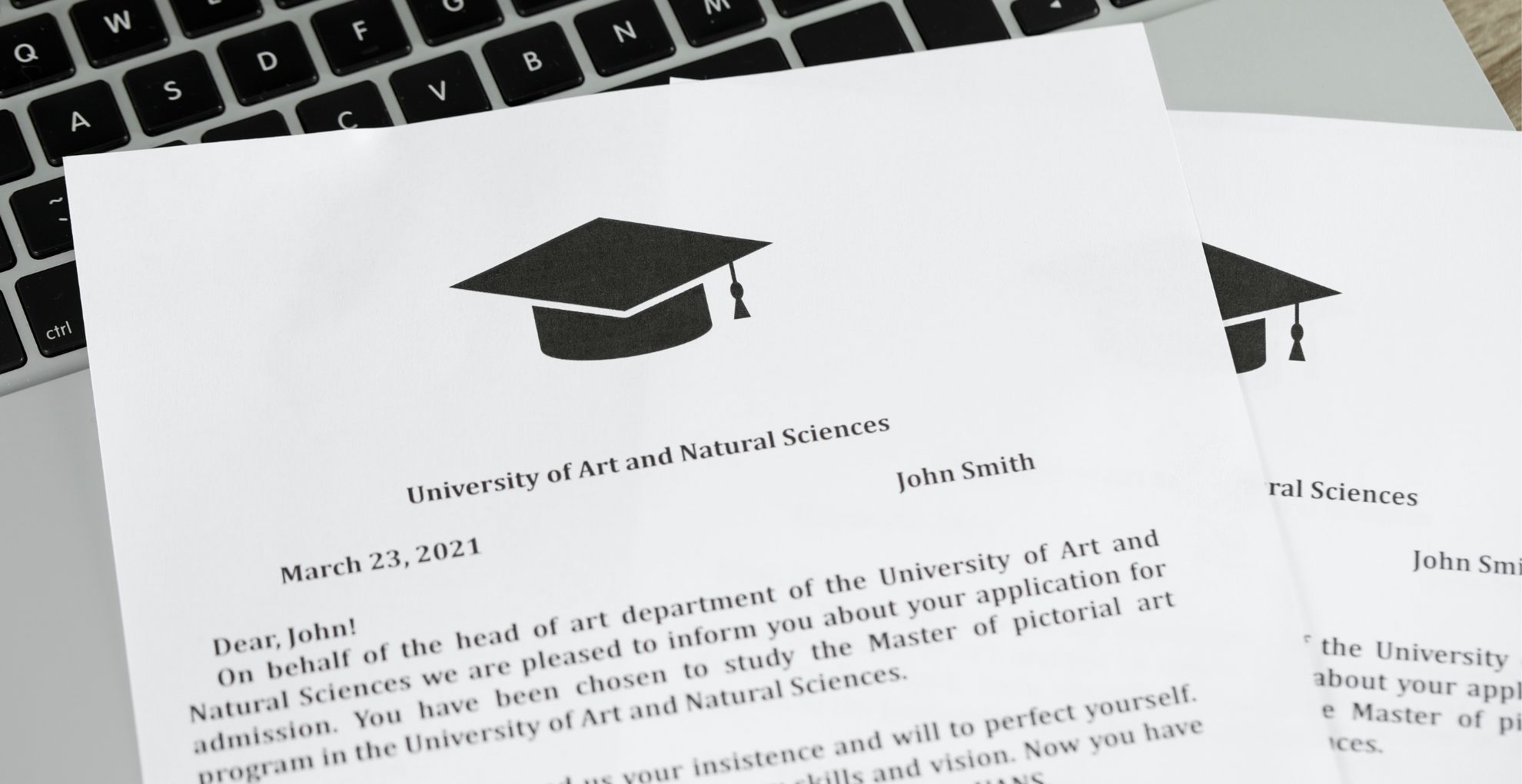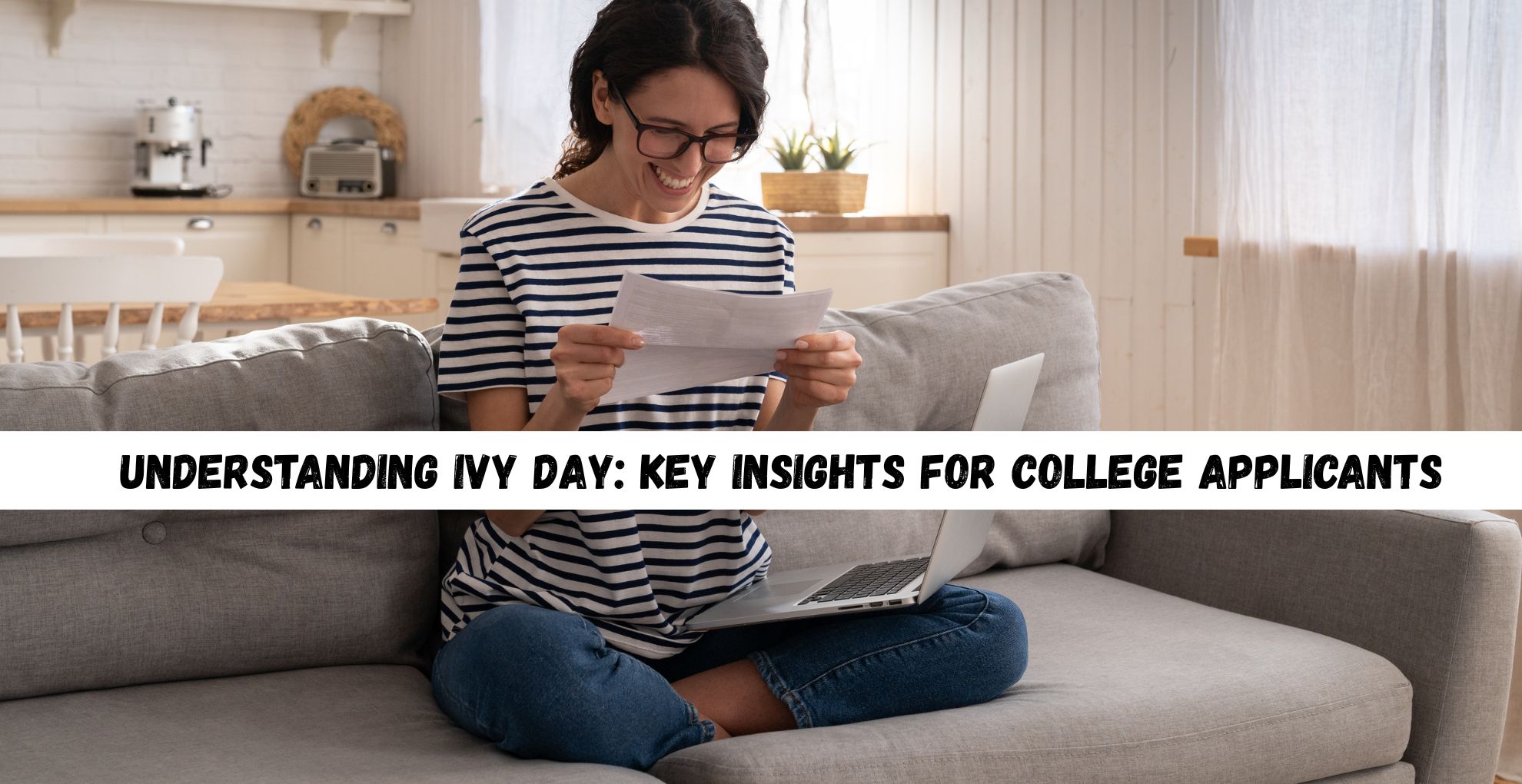Each spring, high school seniors across the U.S. — and around the world — wait with bated breath for one of the most emotionally charged moments in the college admissions journey: Ivy Day. It’s the day when the nation’s eight Ivy League schools simultaneously release their Regular Decision admissions results. It’s a day filled with relief, heartache, joy, and introspection—sometimes all at once.
Ivy Day feels like a turning point for students who have spent years developing stellar academic records, accumulating extracurricular honors, and writing meaningful personal statements. However, knowing what Ivy Day is and how to get ready for it can help make the experience more tolerable and meaningful, regardless of whether the news is reason to celebrate or to reevaluate plans.
Understanding Ivy Day
What is Ivy Day, and When Does It Happen?
Ivy Day refers to the evening in late March — usually around March 30 — when all eight Ivy League universities release their Regular Decision admissions decisions online. These schools include Harvard, Yale, Princeton, Columbia, Brown, Dartmouth, Cornell, and the University of Pennsylvania. They virtually always announce at the same time, usually at 7:00 p.m. Eastern Time, though the precise date may differ somewhat from year to year.
The moment is made more intense by the Ivy League schools’ collaboration. Students frequently hear all of their decisions in a matter of minutes, which can cause a lot of mental turmoil, particularly for those who have applied to several Ivies.
Which Colleges Participate in Ivy Day?
Only the Ivy League institutions participate in this synchronized release. Though many other top-tier schools like Stanford or MIT also have late-March decision dates, they do not coordinate with the Ivies. Ivy Day is uniquely tied to these eight prestigious schools, which are collectively known for their rigorous admissions processes, academic excellence, and long-standing reputations.

Why Ivy Day is Such a Big Deal
The Intensity of Ivy League Admissions
For many students, applying to an Ivy League is the culmination of years of dedication and discipline. These schools are not only academically elite but also incredibly selective. With acceptance rates ranging from about 3% to 7%, even the most qualified applicants can be turned away. These odds add gravity to Ivy Day — and a level of uncertainty that’s tough to prepare for emotionally.
Ivy League schools evaluate applicants holistically. This means they’re not just looking at GPA and test scores but also leadership roles, community service, essays, and personal backgrounds. Despite a student’s qualifications, admissions decisions can still feel unpredictable.
How Ivy Day Has Evolved
In the past, students found out about their admissions decisions through physical letters, sometimes weeks after the actual decision was made. Now, with online portals and email notifications, Ivy Day has become a real-time event. Many students gather around computers with friends or family, anxiously waiting to click the refresh button at just the right moment.
While the technology has changed, the emotions remain the same. Whether you’re sitting alone in your bedroom or a group chat with friends, the reveal can be deeply personal and unforgettable.
What to Do on Ivy Day — A Step-by-Step Guide
Before Results Are Released
The hours leading up to Ivy Day can be filled with nerves, excitement, and a sense of impending change. It’s important to create a calming environment for yourself. Find a quiet space where you won’t be interrupted. You might want to be alone, or you might want a trusted family member or friend by your side — there’s no right or wrong way to approach it.
Take a few moments to ground yourself emotionally. Consider writing out three possible outcomes: accepted, waitlisted, or rejected. Mentally preparing for each scenario helps reduce the emotional whiplash of opening decisions.
Also, have your login credentials ready. It may sound basic, but the last thing you want is to be fumbling with passwords while your heart is racing.
When Results Go Live
As the clock strikes release time, take a deep breath. Open the portals one at a time. Whether you find joy or disappointment, try to stay in the moment. If you’re with others, be mindful of their reactions too. Everyone’s story is unfolding differently, and all are valid.
If your results are mixed, allow space for complex emotions. You might be accepted to one Ivy League and rejected by another. It’s okay to celebrate and grieve at the same time.
Accepted on Ivy Day? Here’s What to Do Next
Celebrate Thoughtfully
If you’re accepted, congratulations! That’s an incredible achievement. Share your joy with those who supported you — your family, teachers, counselors, and peers. At the same time, remember that some of your friends might be processing different outcomes. Celebrate, but do so with kindness and empathy.
Evaluate Your Offers
The next few weeks will involve thoughtful decision-making. Just because you were accepted to an Ivy League doesn’t mean it’s automatically the best fit. Look closely at financial aid packages, scholarship offers, academic programs, and student life.
Attend virtual or in-person admitted student events. These experiences can give you a feel for the campus culture and help confirm whether it’s truly where you want to be.
Make a Final Decision
You’ll need to commit to a college by May 1. Take your time, ask questions, and trust your instincts. Once you make your decision, remember to notify the other schools where you were accepted — this frees up spots for other students.

Waitlisted? Here’s How to Improve Your Chances
Take Immediate Action
Being waitlisted isn’t a no — it’s a maybe. If you’re still interested in attending, send a Letter of Continued Interest (LOCI). Keep it concise and sincere. Update the school on any new grades, awards, or accomplishments since you submitted your application, and express your genuine desire to attend.
Set Realistic Expectations
Waitlist acceptances are rare and unpredictable. It’s important to secure your place at another school by the May 1 deadline. Choosing a school that accepted you doesn’t mean you’re settling — it means you’re moving forward. And if a spot opens up on the waitlist later, you can revisit your options.
Rejected? How to Cope and Move Forward
Allow Yourself to Feel Disappointed
A rejection from an Ivy League school can feel deeply personal, especially if you poured your heart into your application. It’s okay to grieve — take a walk, journal your thoughts, talk to someone you trust. But remember: this doesn’t define your worth or your future.
Focus on What’s Next
There’s a world of excellent colleges and universities beyond the Ivy League. Many offer robust academic programs, passionate communities, and meaningful growth opportunities. Where you go to college matters less than what you do when you get there.
Some students explore gap year options, consider transferring later, or even launch creative projects or businesses. Your journey is your own — and it’s just beginning.
Talk to Mentors or Counselors
If you’re feeling lost, contact a school counselor, teacher, or mentor. They can offer perspective and help you reframe your path forward. You’re not alone in this.
How to Prepare for Ivy Day in Advance
Set Expectations Early
Long before Ivy Day arrives, it’s helpful to have honest conversations with your support system about what to expect. Talk about the realities of low acceptance rates and explore what success means beyond name-brand schools. These discussions can take some pressure off when the day finally arrives.
Build a Balanced College List
The best way to make Ivy Day less stressful is by applying to a mix of reach, match, and safety schools. A balanced list increases your chances of having great options — and reduces the emotional weight of a single day’s outcome.

FAQs About Ivy Day
Is Ivy Day the same for Early Decision applicants?
No. Ivy Day only applies to Regular Decision applicants. Early Decision notifications are typically released in December.
Do all Ivies release decisions at the same time?
Yes, for Regular Decision applicants. The Ivies coordinate a joint release time, usually 7 p.m. ET.
Can I appeal a rejection or ask to be reconsidered?
Unfortunately, Ivy League schools do not offer appeal processes for denied applicants.
What are my chances of getting off the waitlist?
It depends on the school and year, but waitlist acceptance rates are usually under 5%.
Do I need to respond if I was waitlisted?
Yes. You’ll often need to opt into the waitlist and should send a letter of continued interest if you’re still enthusiastic about attending.
Final Thoughts
Ivy Day can feel like the end of one chapter and the start of another — filled with highs, lows, and everything in between. Whether you open a portal and see a long-awaited “Congratulations!” or a disappointing “We regret to inform you,” remember: your future isn’t decided in a single moment. It’s shaped by your resilience, your curiosity, and the passion you bring to whatever path you choose.
So, take a breath. Celebrate your hard work. And look ahead — because your journey is just beginning.




